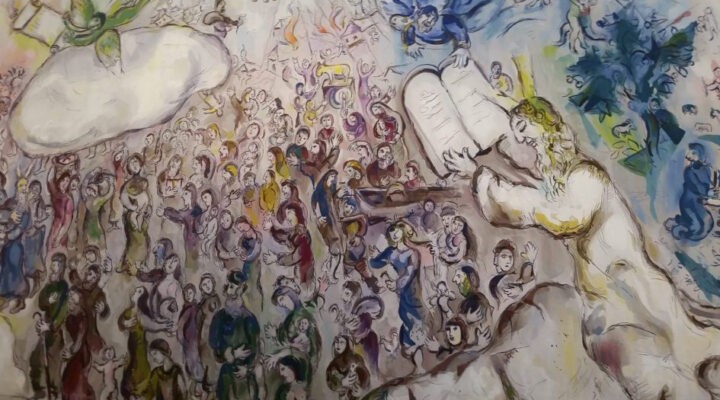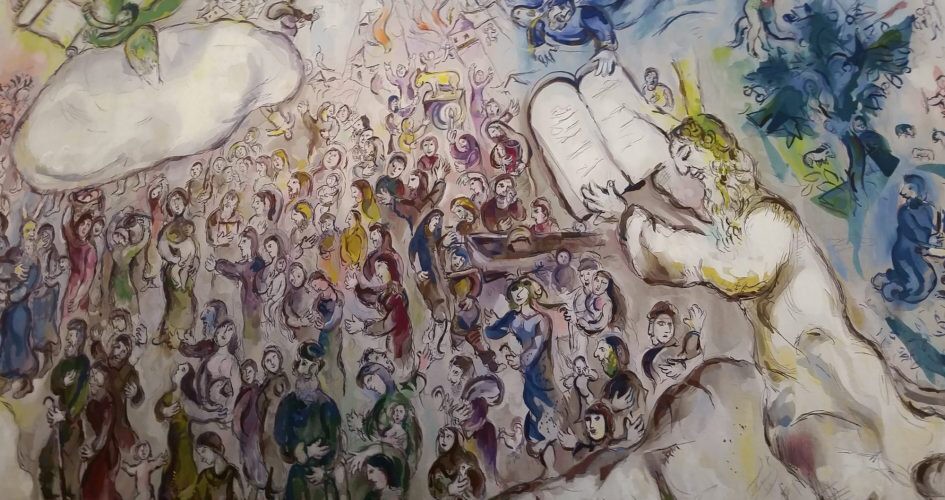It’s in the Bible. In fact, it’s one of the Ten Commandments: “You shall not bear false witness against your neighbor.” (See Exodus 20:16.)
There’s more: Do not lie to one another, seeing that you have stripped off the old self with its practices.” (See Colossians 3:9.)
It gets worse: “But as for the cowardly, the faithless, the polluted, the murderers, the fornicators, the sorcerers, the idolaters, and all liars, their place will be in the lake that burns with fire and sulfur, which is the second death.” (See Revelation 21:8.)

Bill Leonard
That last verse offers little comfort to the vast majority of the human species, since sooner or later almost everyone “prevaricates.” (The word “prevaricate” seems so much classier, if not less sinful, than the word “lie.”)
Whether we lie a little or make a profession of it, odds are that many, if not most of us, fall off the truth wagon from time to time. When that happens, we may attempt to soften the blow by calling them “little white lies.” (That simple phrase may not be long for this world, however, since opponents of Critical Race Theory may fear that it will lay “unnecessary guilt” on certain Anglo-Saxon school children.)
If we’re really a ‘Christian’ nation, why do we tolerate this lying?
As a historian of religion in America, what haunts me these days is the increasing connection between the idea that the United States is a historically “Christian nation” and the increasing acceptance, even by Christians, of the politics of lying in the public square. Aren’t the two concepts mutually exclusive, biblically, if not ecclesiastically? If the American Republic is foundationally “Christian,” then why do so many advocates of that belief appear to accept or tolerate prevarication so readily?
“If the American Republic is foundationally ‘Christian,’ then why do so many advocates of that belief appear to accept or tolerate prevarication so readily?”
On Feb. 9, 2022, Baptist Joint Committee for Religious Liberty released a report titled, “Christian Nationalism and the January 6, 2021, Insurrection,” exploring the links between that view of America and the mob assault on the Capitol. Amanda Tyler, BJC executive director, writes that “Christian nationalism is a political ideology and cultural framework that seeks to merge American and Christian identities, distorting both the Christian faith and America’s constitutional democracy. Christian nationalism relies on the mythological founding of the United States as a ‘Christian nation,’ singled out for God’s providence in order to fulfill God’s purposes on earth. Christian nationalism demands a privileged place for Christianity in public life, buttressed by the active support of government at all levels.”
In the first essay, sociologists Andrew Whitehead and Samuel Perry cite a February 2021 survey suggesting that “the more white Americans affirm indicators of Christian nationalism, the more likely they are to deny Trump’s culpability in the riots and the more likely they are to affirm debunked conspiracy theories about the involvement of Black Lives Matter and Antifa.” They note: “Recent research demonstrates that white Christian nationalism is intimately intertwined with (false) conspiratorial thinking — such as QAnon — and white supremacist ideology.”
Katherine Stewart, author of The Power Worshippers: Inside the Dangerous Rise of Religious Nationalism, observes that in numerous Christian nationalism-related conferences she attended the “audiences were told, heatedly and repeatedly, that America is and always has been a Christian nation, that the Bible is on the verge of being outlawed, and that the 2020 election was corrupt.” All those assertions are false.
In her concluding article, Amanda Tyler references evangelical leaders who perpetuated falsehoods after the Capitol riot, writing: “The Rev. Franklin Graham, a prominent evangelical leader, and the Rev. Robert Jeffress, senior pastor of First Baptist, Dallas, both referenced Antifa in public statements following the attack. Eric Metaxas did the same, saying on Twitter, ‘There is no doubt the election was fraudulent. That is the same today as yesterday. There is no doubt Antifa infiltrated the protesters today and planned this. This is political theater and anyone who buys it is a sucker. Fight for justice and pray for justice. God bless America!’”
Antifa was not involved in the Jan. 6 riot.
Christian nationalism is not Christianity
Tyler insists that while “Christian nationalism is not Christianity,” it nonetheless “relies on Christian imagery and language” to make its case for privileging Christianity as the original faith around which the country was founded. She concludes: “Christianity does not and cannot unite Americans under a national identity. Our country is marked by robust religious pluralism, allowing many faiths to flourish and ensuring people of no faith have equal rights. A renewed commitment to the values of religious freedom for all — not just support for a majority religious identity — can bring together all Americans, regardless of religious beliefs.”
“Jan. 6, 2021, came and went, but Christian nationalism and false witness continue.”
Jan. 6, 2021, came and went, but Christian nationalism and false witness continue, documented yet again in a New York Times front-page article on April 25, 2022, titled “The Stolen-Election Falsehood Goes to Church.” Author Charles Homans observes that while many evangelical congregations have long expressed opposition to abortion and gay marriage, “now, some of those churches have embraced a new cause: promoting Donald J. Trump’s false claim that the 2020 election was stolen.”
While these are probably a minority of American evangelical congregations, they often are exceedingly vocal in defending lies of a stolen presidential election, sometimes creating venues for the evangelists or politicians promoting them. Homan cites a study from the Public Religion Resource Institute indicating some 60% of “white evangelical respondents” affirmed stolen election falsehoods.
Learning from Babel
In a recent Atlantic article titled, “Why the Past 10 Years of American Life Have Been Uniquely Stupid,” Jonathan Haidt uses the Babel biblical story as a metaphor, declaring: “It’s been clear for quite a while now that red America and blue America are becoming like two different countries claiming the same territory, with two different versions of the Constitution, economics and American history. But Babel is not a story about tribalism; it’s a story about the fragmentation of everything. It’s about the shattering of all that had seemed solid, the scattering of people who had been a community. It’s a metaphor for what is happening not only between red and blue, but within the left and within the right, as well as within universities, companies, professional associations, museums, and even families.”
If red/blue America is fragmented, so are their churches. Clearly, Christian nationalism and rampant false witness issues are problematic in and for American congregations and denominations, institutions swamped by internal divisions over politics, theology, doctrine and culture. Externally, churches confront the reality that one in five Americans claim no discernable religious affiliation, and those professing Christianity have dropped from 75% to 63% in the last decade. Apparently, many Americans, knowingly or unknowingly, need a new sense of the church’s witness. And it better not be false.
Learning from Roger Williams and Jesus
What are we to do? Reflecting on that, I ran back to Roger Williams and Jesus of Nazareth.
Williams, erstwhile Baptist and religious liberty advocate, sets forth his position on Christian nationalism in his 1643 masterpiece, The Bloudy Tenent of Persecution, for the Cause of Conscience:
First that the People (the Original of all free Power and government) are not invested with Power from Christ Jesus to rule his Bride or Church, to keep it pure, to punish Opposites by force of Armes.
Secondly, that the Pattern of the National Church of Israel, was a None-such, unimitable by any Civil State, in all or any of the Nations of the World beside.
In John’s Gospel (18:37-38), Jesus, on his way to Golgotha, tells Pilate, the Roman governor: “For this I was born, and for this I came into the world, to testify to the truth. Everyone who belongs to the truth listens to my voice.”
Pilate asked him, “What is truth?”
Two millennia later, we ask that same question.
Or we’d better.
Bill Leonard is founding dean and the James and Marilyn Dunn professor of Baptist studies and church history emeritus at Wake Forest University School of Divinity in Winston-Salem, N.C. He is the author or editor of 25 books. A native Texan, he lives in Winston-Salem with his wife, Candyce, and their daughter, Stephanie.
Related articles:
The white evangelical war on truth | Analysis by Joel Bowman Sr.
Truth Decay: How truthfulness is related to humility | Opinion by David Gushee
Choose you this day whom you will serve, Truth or Trump | Opinion by Mark Wingfield


